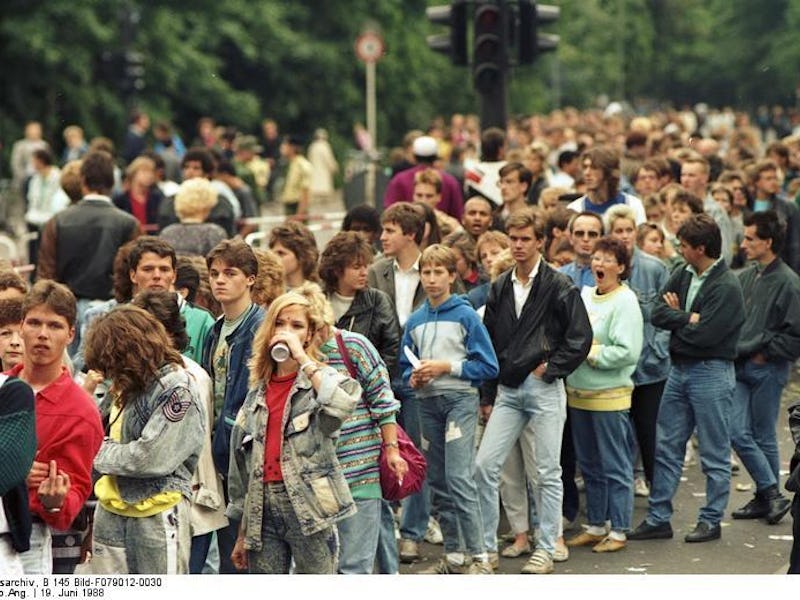To Reduce Long Lines, Serve the Last Person First
An idea from Europe, of course.

Lines are awful no matter how you approach them. Let’s say there’s a big show that’s just been announced: your favorite comedian, in town for one night only, and tickets are first-come first-serve. If you really want to guarantee a spot, you have to be first — so you have to get there earlier than everyone else and wait. You can go later and hope the lines won’t be that long, but really, has that ever worked out? Perpetual latecomers have to risk a lot of time for what might very well be no ticket to the show. Or just say “fuck it” and head to a bar.
Big lines like that also affect everyone else in the vicinity. Having a bunch of loiterers blocking the sidewalk creates chaos. An unintended bump turns into a “watch it, buddy!” which turns into a shove, which turns into a punch, which turns into a fight, and suddenly you’re bartering antibiotics for bullets as your town burns down around the fleeing thousands.
All because you and everyone else thinks lines should work as “first come, first serve.”
A pair of Danish researchers have published a paper suggesting we can avoid this mess by pretty much doing the opposite, and serving the last person in line first. It’s totally counterintuitive — and raises a ton of questions about fairness and rewarding for patience — but it might actually make a bit of sense.
The researchers, business professors from the University of Southern Denmark, explored situations where specific facilities, like online ticket vendors, doctor’s phone lines, or traffic jams, offer a service that causes recipients to form bottleneck lines. The fairest way to receive these people is to serve them based in the order that they’ve gotten in line. Or so we’ve been led to believe by the early risers.
The researchers argue first-come-first-serve causes lines to balloon and forces people to queue for the longest time possible. They propose a last-in-first-out system that makes a sucker’s game out of waiting. People are much less likely to queue up early, because there’s almost no incentive to doing so, other than to avoid any line whatsoever. Thus people aim to join lines late, and lines stay relatively short. The researchers argue people will always be served, and others continue to arrive a little faster than they are served.
Sure, that all makes sense. And it also doesn’t. In this system, people would presumably try joining lines at literally the last possible second. Really, all that ends up happening is that the tail of the line becomes the head, and everyone simply looks to keep moving to the back. Just imagine everyone trying to cut to the back of the line. Eventually that just becomes the place to be to get served, and it becomes the new front of the line.
And to a certain extent, the Danish researchers agree — there’s no way a system like this would work for physical lines. No one will be okay with seeing their asshole buddy who’s late to everything waltz up to the back of the line at the deli and get served first. More likely is someone will be serving him up a kick in the pants.
But instead, the researchers think a last-in-first-out system could work well to reduce waiting times in telephone and internet queues. Instead of everyone being the first to try to buy up tickets for Taylor Swift’s new tour and crashing the box office website, people are more likely to wait a bit longer. Something like that … kind of makes sense.